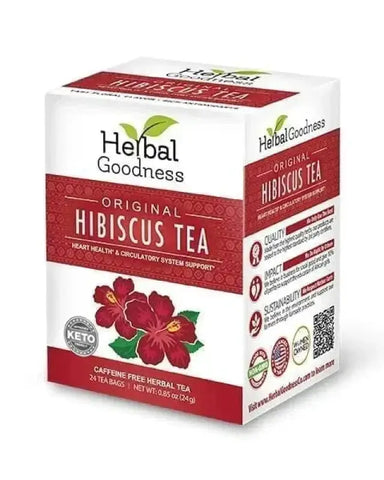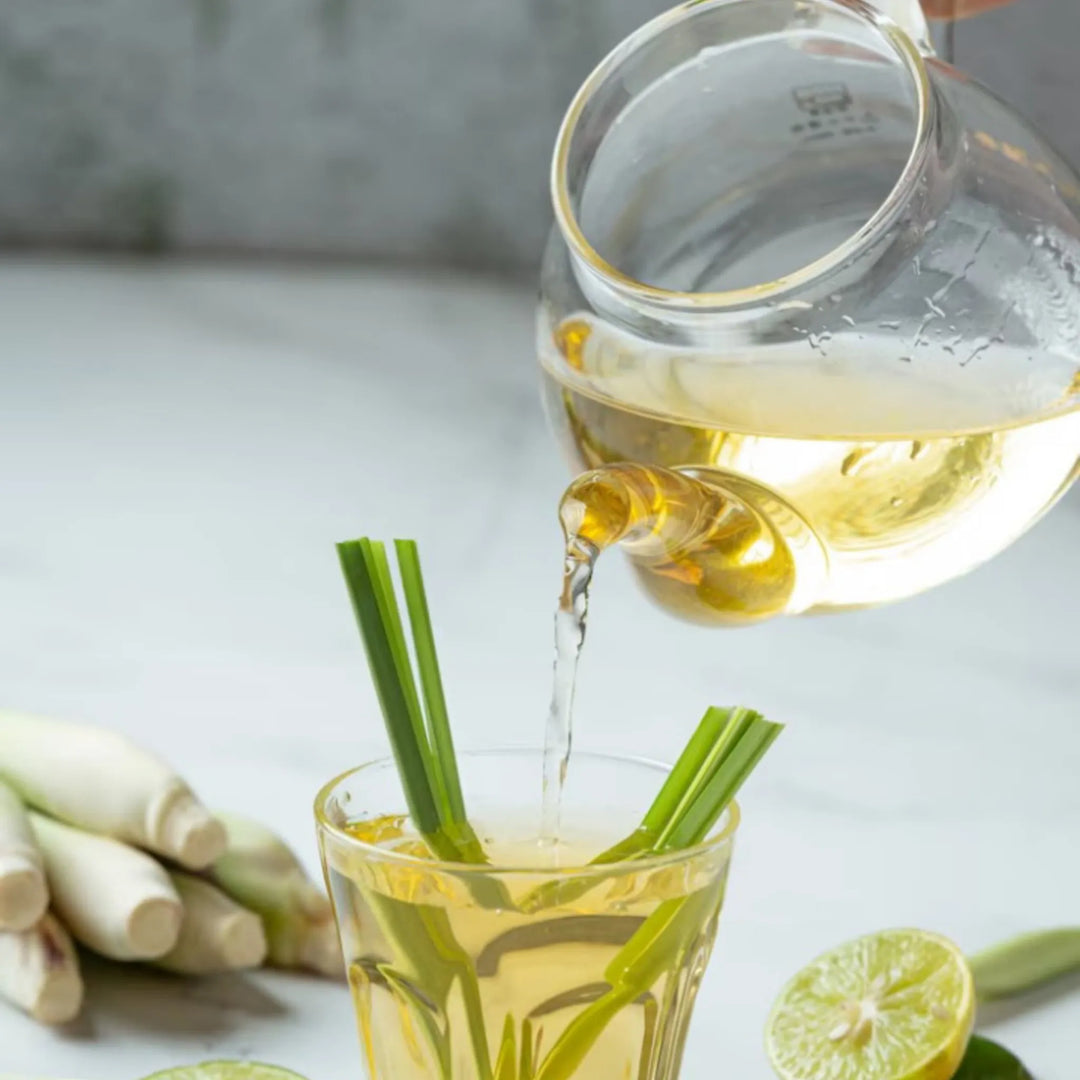Hibiscus Tea: A Popular Herbal Drink with a Rich History
Hibiscus tea, a vibrant and flavorful herbal drink, has been enjoyed for centuries by various cultures around the world. Known for its tangy, refreshing taste and deep red color, hibiscus tea is not only delicious but also offers a variety of benefits that have made it a staple in many traditional remedy practices. This blog will explore the rich history of hibiscus tea, its many benefits, and why it remains a popular herbal drink today.
What is Hibiscus Tea?
Hibiscus tea is made from the dried petals of the hibiscus flower, which is known scientifically as Hibiscus sabdariffa. The flower itself has been used in different cultures for centuries, not just as a refreshing beverage, but also as part of traditional health practices. The plant is widely grown in tropical and subtropical regions, including parts of Africa, Asia, and the Caribbean.
The dried petals of the hibiscus flower are steeped in hot water to create the tea, resulting in a deep red color and a tart, fruity flavor. Sometimes referred to as “roselle” in many regions, hibiscus tea is enjoyed hot or cold, and it can be flavored with a variety of other ingredients, such as honey, ginger, or citrus, to boost its natural taste.
A Rich History of Hibiscus Tea
The use of hibiscus flowers dates back centuries. In Ancient Egypt, hibiscus was a symbol of fertility and femininity. It was used in medicinal practices, with Egyptian royalty often consuming hibiscus tea as a part of their health and wellness routines. The flowers were also used in cosmetics and perfumes due to their fragrant aroma.
Hibiscus tea spread across other parts of the world as trade routes expanded. In the Caribbean, hibiscus became an integral part of local culture, where it’s still commonly brewed as a refreshing herbal drink. Across Africa, hibiscus tea has also been widely consumed, not only for its flavor but also for its perceived health benefits.
In recent years, hibiscus tea has gained popularity worldwide as a trendy and healthy beverage, praised for its natural ingredients and vibrant flavor. People across the globe are now incorporating this herbal drink into their daily routines.
The Health Benefits of Hibiscus Tea
While hibiscus tea is known for its refreshing and bold taste, it is also widely consumed for its health benefits. Here are a few key reasons why people enjoy hibiscus tea as a part of their wellness regimen:
1. Supports Hydration
Like many herbal drinks, hibiscus tea is a great way to stay hydrated throughout the day. Proper hydration is essential for overall health, and drinking hibiscus tea can provide a flavorful alternative to plain water. By staying hydrated, you help your body maintain its natural functions and promote a healthy balance of fluids.
2. Rich in Antioxidants
Hibiscus tea is rich in antioxidants, which are compounds that help protect the body from the harmful effects of free radicals. Antioxidants play an essential role in supporting the body’s natural defense systems and contribute to overall well-being. Drinking hibiscus tea regularly can support the body’s ability to detox and promote a healthier, balanced lifestyle.
3. Supports Immune Health
The antioxidants found in hibiscus tea, combined with its vitamin C content, make it a great choice for supporting the immune system. Vitamin C is known for its role in immune function and helps protect the body from illnesses. By consuming hibiscus tea, you provide your body with essential nutrients that can help keep your immune system strong.
4. Natural Source of Vitamin C
Hibiscus tea is also an excellent natural source of vitamin C, which is an essential nutrient for supporting healthy skin, bones, and teeth. Vitamin C is also important for the growth and repair of tissues, and it aids in the absorption of iron from plant-based foods. Adding hibiscus tea to your diet can help ensure you get a sufficient amount of this vital vitamin.
5. Supports Digestive Health
Hibiscus tea is known to support healthy digestion. It has mild diuretic properties, which can help with the body’s natural detoxification process. By supporting kidney function, hibiscus tea helps flush out waste and toxins, promoting healthy digestion and aiding in overall gut health.
6. Promotes Relaxation
The tart, refreshing flavor of hibiscus tea can be soothing, offering a moment of calm and relaxation. Many people enjoy hibiscus tea before bedtime to unwind after a busy day, as it can help promote a sense of tranquility. Drinking this herbal tea can be a perfect way to wind down and prepare for a peaceful night’s sleep.
7. Supports Healthy Skin
Thanks to its high levels of vitamin C and antioxidants, hibiscus tea is also beneficial for the skin. Vitamin C helps support collagen production, which is important for supporting skin elasticity and overall skin health. Additionally, the antioxidants in hibiscus tea may help protect the skin from damage caused by environmental factors such as pollution and UV rays.
8. Helps Maintain a Healthy Weight
Hibiscus tea is naturally free from calories and has been associated with detox. Some studies suggest that hibiscus tea may help support a healthy metabolism and assist in maintaining a balanced weight. Since it is a low-calorie beverage, it can be a satisfying alternative to sweetened drinks and sodas.
9. Supports Cardiovascular Health
One of the most well-known benefits of hibiscus tea is its support for heart health. This can be especially important for individuals looking to support healthy cardiovascular function. While hibiscus tea should not be relied on as a sole treatment for cardiovascular health, it can be a valuable addition to a healthy lifestyle.
How to Brew Hibiscus Tea
Brewing hibiscus tea is simple and can be done in just a few easy steps. Here's how you can make your own refreshing cup of hibiscus tea:
Ingredients:
1 to 2 teaspoons of dried hibiscus petals
1 cup of hot water
Optional: sweetener (honey), lemon, or other flavorings
Instructions:
1. Steep the Hibiscus Petals: Place the dried hibiscus petals in a tea infuser or directly into a teapot. Pour hot water over the petals and allow them to steep for about 5 to 10 minutes, depending on how strong you prefer your tea.
2. Strain the Tea: If you didn’t use an infuser, strain the tea to remove the petals. You’ll be left with a beautifully colored and aromatic liquid.
3. Add Flavor: Sweeten your tea with honey, sugar or your favorite sweetener if desired. You can also add lemon or ginger for an extra kick of flavor.
4. Serve and Enjoy: Hibiscus tea can be enjoyed hot, or it can be chilled for a refreshing iced tea. The vibrant red color and tart flavor make it an enjoyable herbal drink all year round.
Hibiscus Tea: A Versatile Herbal Drink
Hibiscus tea is not only enjoyed as a hot or cold beverage, but it can also be used in a variety of ways. Some people use it in smoothies or incorporate it into recipes for desserts like sorbets, jams, or fruit salads. Its vibrant color and unique flavor make it an exciting ingredient for creative recipes.
Conclusion
Hibiscus tea is a herbal drink with a long and rich history that continues to captivate tea drinkers around the world. From its origins in Ancient Egypt to its modern-day popularity, hibiscus tea offers more than just a refreshing taste. With its antioxidants, vitamins, and many health benefits, hibiscus tea is a great addition to any wellness routine.
Whether you enjoy it hot or iced, sweetened or unsweetened, hibiscus tea provides a delicious and natural way to support overall health and well-being. Consider adding this vibrant herbal drink to your daily routine and experience the many benefits it offers.
Ready to explore the refreshing taste and benefits of hibiscus tea? Visit HerbalGoodnessco.com and discover our premium hibiscus tea offerings. Let this vibrant herbal drink be a part of your wellness journey today!












